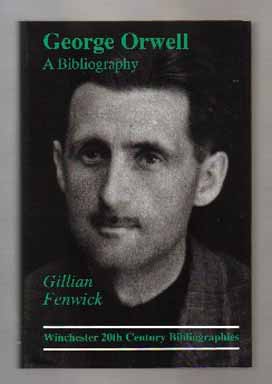From Charles Dickens to Norman Mailer, writers past and present have expanded the English language with neologisms, or new words and phrases. Even the word neologism is one, borrowed from the French néologisme.
 George Orwell conjured new words in his novel 1984 to capture the essence of a futuristic society."Big Brother," the tyrannical Party leader in the novel, has entered everyday speech to describe governments or organizations that overextend their power.
George Orwell conjured new words in his novel 1984 to capture the essence of a futuristic society."Big Brother," the tyrannical Party leader in the novel, has entered everyday speech to describe governments or organizations that overextend their power.- The origin of the word "nerd" is not exactly the high school geek of popular culture. The term was first used by Dr. Seuss in his 1950's book If I Ran the Zoo to describe an odd little animal.
- In the nonsensical 1872 poem Jabberwocky, Lewis Carroll added descriptors such as "chortle" (a laugh somewhere between a chuckle and a snort) and "galumphing" (to gallop triumphantly) to the modern dictionary.
- "Yahoo" can mean many things today — whether it's in reference to the online company or something that's shouted in excitement. Its origin, however, stems from the name of the Neanderthal-ish race of people in Jonathan Swift’s 1726 novel Gulliver's Travels.
- William Shakespeare, the king of neologisms, brought more than 2,200 words to the English language, including "cold-blooded" from King John, when Constance says: “Thou cold-blooded slave, hast thou not spoke like thunder on my side, been sworn my soldier, bidding me depend upon thy stars, thy fortune and thy strength, and dost thou now fall over to my fores?”.
- The word addiction, a term now applied to everything from food to love, has its origins from Othello, where it connotes desire, not dependency. Herald speaks, “It is Othello's pleasure, our noble and valiant general, that, upon certain tidings now arrived, importing the mere perdition of the Turkish fleet,every man put himself into triumph; some to dance, some to make bonfires, each man to what sport and revels his addiction leads him.”
- To give someone "the creeps," that feeling of fear or revulsion, may sound like contemporary slang, but its origins are from Charles Dickens' David Copperfield. "Wiz-Bang" is also another Dickensian word that may sound like recent slang, but is from his 1836 The Pickwick Papers, and means something very rapid and eventful, such as an epiphany.
- In his 1973 biography of Marilyn Monroe, Norman Mailer coined "factoid," combining the word "fact" and -oid, to mean something that may appear to be a fact but is not.







